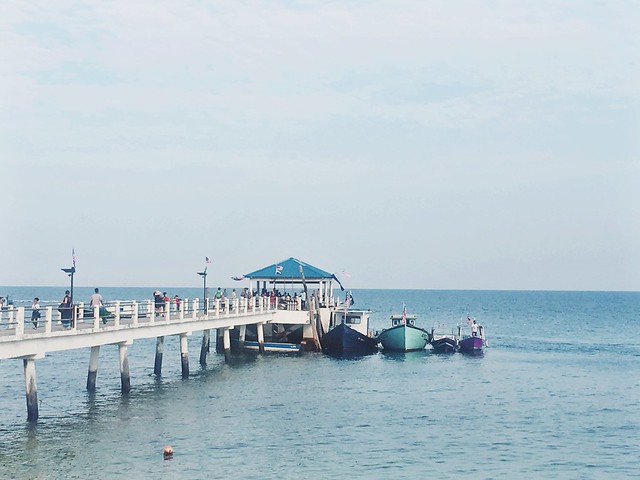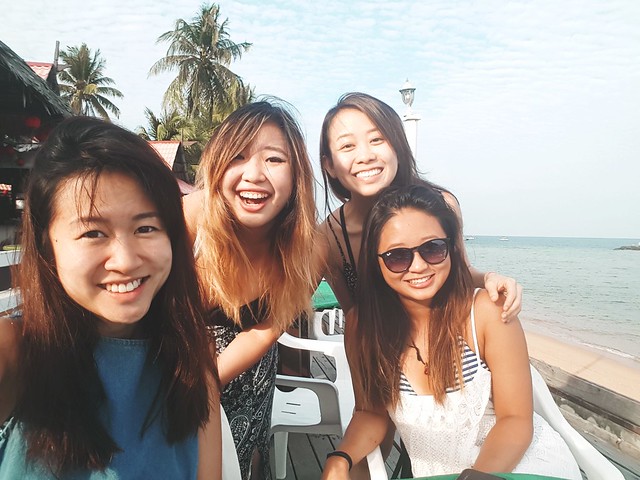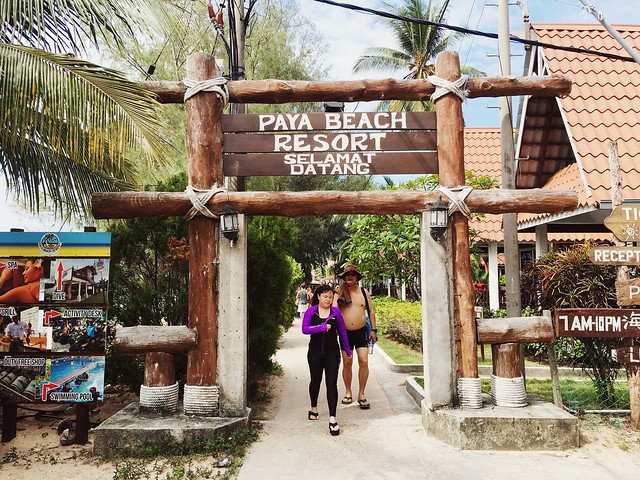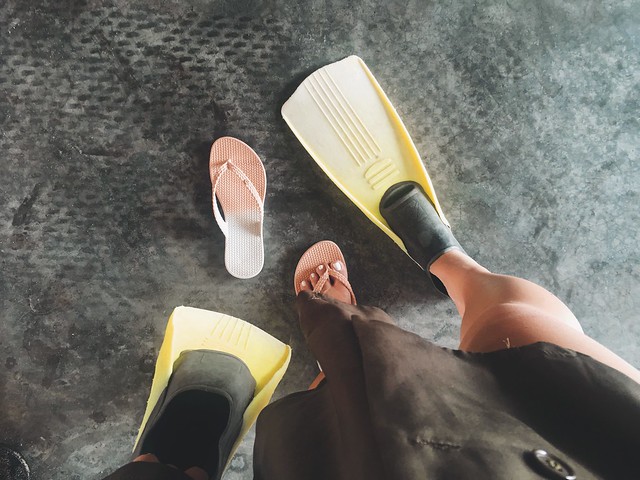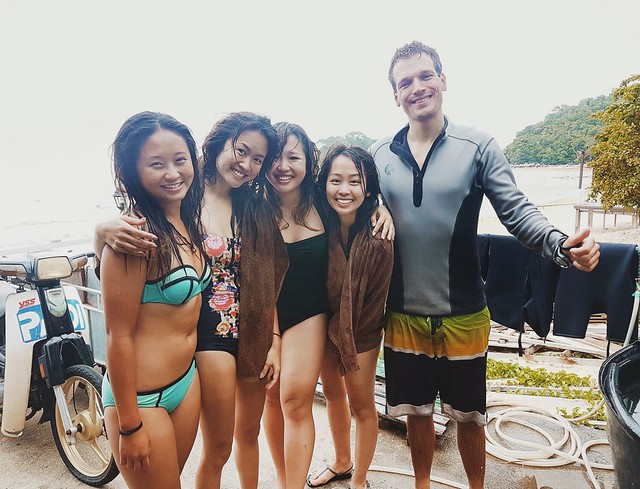So, over one of the weekends in September I finally fulfilled one of my bucket list items and got my PADI Open Water Divers License. I’ve gotten a lot of requests to blog about my experience so in the name of both memory-keeping as well as BSG-creation for those of you looking to get your license too, here I am:
When you get your diving license you can start going on all sorts of really incredible trips with other divers, and the potential for creating that kind of memories in my relative youth is a huge part of why I finally decided to take the certification. Besides, it’s only a weekend and under a thousand bucks for a whole new skill. Not bad, I think.
Firstly, the minute you fly somewhere the cost of your entire license goes up considerably.
Secondly, due to the concentration of nitrogen in your blood after diving, you can’t get on a plane for an approximate 24 hours after your last dive to be safe. Think about it – extreme low altitudes to extreme high altitudes messes up your insides, and so it’s always better to be safe than sorry. But this also means that the amount of time wasted just waiting around for your buffer period to be up before you fly home means that you probably cant complete your license over the weekend, and if youre going with friends who are WORKING ADULTS, this drastically affects them because they have to apply for more leave, so on and so forth.
I went with Diver’s Cove because they’ve got a pretty good rep and also because Xiaoqi had a girlfriend recommend them to her. There are quite a few other dive schools in Singapore that are also popular, like Gill Divers, and so on. Do your research before picking a place!
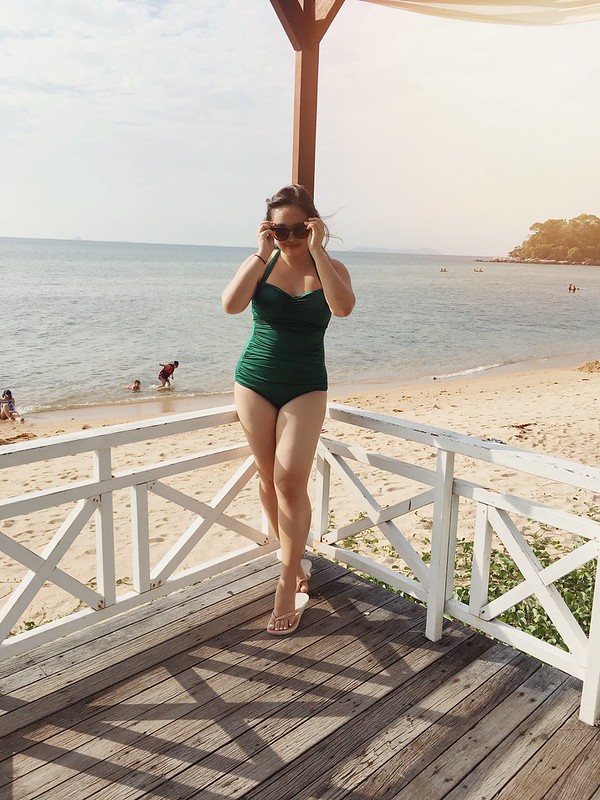
I feel like learning to dive is one of the most cost-efficient new skills to pick up because the entire thing spans a long weekend (three days) and costs about six hundred bucks or so, inclusive of accommodation and ferry to and fro tioman. On top of that, we each changed a hundred SGD for meals, but we barely used up half of it because if you have lunch and dinner family-style, meaning you guys all share dishes, you’ll find that each meal costs very little for what it’s worth. So many great seafood dinners! If you compare that to other similar new skills like learning to drive or learning to ski I think it’s one of the most time and cost efficient things to introduce to your life. Ha.

Diving has gotten a bit of a rep as a relaxing sport, a beautiful one that doesn’t require as much physical exertion as say, rock climbing, or mountain scaling. Sure. But it’s still an intense activity, and it’s one you need to respect and take very seriously. I mean, come on buddy. Do I really have to spell it out for you? If you mess around while learning to dive, you might not know what to do if your oxygen tank malfunctions, and then you will suffocate and drown. This is something my girlfriends and I talked about after our first dive, and that we all agreed on. Once you actually learn to dive, it’s so great and fun and breathtaking that you kind of forget how terrifying it can be in the learning process. But it is.
Here are the two things (in my opinion) that you need to take note of before you go for your first dive. Firstly, you have to know how to do very basic swimming. You don’t have to be very good at it. But you have to at least know what youre doing in the water, and how to float, and how to change directions! Make sense?
This is something that never occurred to me because I assumed diving was done in such open waters that the vast expanse of space undersea would never be a problem for claustrophobic people. I was wrong. Over the weekend I realised that claustrophobia is limited not only by the boundaries of physical space, but also by this thing we call AIR. I know that sounds dumb, but it really only hit me when I was 17 meters underwater and I realised that if I lost my regulator (the thing that feeds you oxygen), I’d have no air and I’d just drown. That kind of realisation makes you suddenly so aware of all the water everywhere pressing in on you, and it can really drive you crazy if you’re as neurotic about space as I am.
I’m not saying that claustrophobic people can’t dive. But I just think it’d be really useful to start visualising yourself underwater before your dive, and start mentally preparing yourself for the experience. If you just happily roll up and yolo it like I did, you’re probably going to get a rude shock!
Ok la, actually I’m being a bit harsh on diving. But I think it’s good to be warned of all these things before you go in, because a lot of the PR around the sport makes it sound SO easy and relaxing. I mean, it is, once you actually learn it properly. But it’s also terrifying and can be dangerous if you dont do it right. Which is why I think it’s better to be safe than sorry and just give everyone the scary bits of diving first so we’re all mentally prepared!
So that’s the skill-learning practical portion. The actual official dives are pretty easy, and get easier the more you go along. They involve exploring the seabed, poking at fish, and chasing turtles. Sounds fun? It is! It’s AMAZING. Just as long as you remember to breathe properly and not step on any sea urchins.
Because despite all that crazy shit, diving is freakin incredible.
If you’ve ever had dreams of flying, diving is the closest you can ever get to that experience. When you glide above the seabed of coral and aquatic life looking down on everything going on, it feels like you’re actually flying. Flying!!!
Being underwater is like NOTHING ELSE in the world. The feeling of descending to the bottom of the ocean is like being granted access into a whole new universe. Everything is vibrant and alive, and none of the fish really care about you because you’re just another big fish to them. Your position on the underwater great chain of being is so tiny and irrelevant that you cannot do anything but be amazed at how intricate the world underwater is, and how you’ve been missing out on so much of the Earth for so long. Because it’s true, isn’t it? Earth is mainly water, and it’s so incredibly self-contained to assume that we have seen it all simply by country hopping and romping around the landlocked 25% of the globe.
On our last dive in a marine park, we swam through schools of fish and spotted rainbow fish, puffer fish, clownfish and so on… but the thing that really sealed it for me was seeing a huge hawksbill sea turtle (the same type as Crush from Finding Nemo). I went nuts!! When we spotted it I immediately took off after it and followed it quite some distance across the sea bed.. it was magical. Didn’t manage to take any pictures since it didn’t make sense to bring the go pro underwater on our first few dives (we had quite enough to remember without having to handle a go pro at the same time) but the memory of swimming with the turtle was more than enough.
The answer is a resounding yes. Learning to dive was a harrowing experience but it was so incredibly rewarding! You shouldnt go into it expecting it to be a breeze, but then again you shouldnt expect that of anything in general. And the sense of accomplishment and wonder at the end of it all was incredible. I can see myself diving again and again in the years to come, and having so many wonderful memories and stories to tell. It’s such an addictive sport and I’d totally recommend it to anyone looking to try something new! 🙂
So that is basically it. My virgin diving experience – hopefully it’ll be useful for any of you looking to try it too. I tried to be as honest as I could about the entire thing, the good and the bad, but overall I think it was definitely one of the more memorable things I did this year. Would recommend. And to the rest of the divers out there – here’s another one joining the club. To more adventures always! x
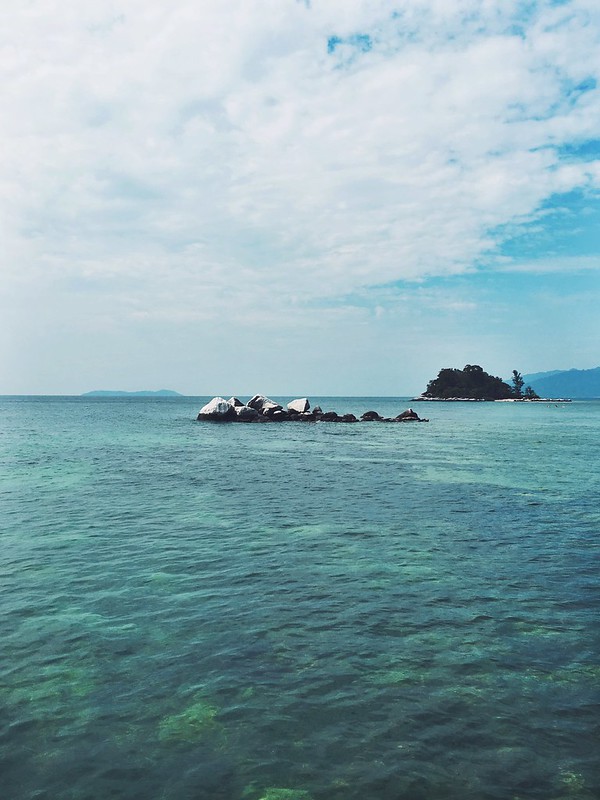
♥jem


